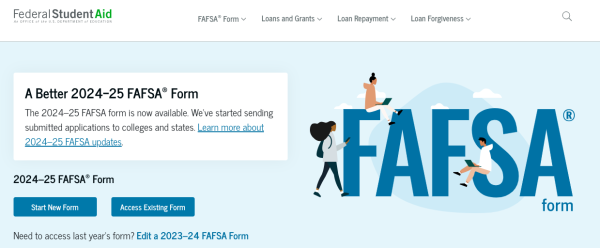How Calvin tests English proficiency for international students
While domestic students stressed over the SAT or ACT, international students from non-English speaking countries studied for those and their own alphabet soup of standardized English language testing. Calvin accepts the Test of English as a Foreign Language (TOEFL) and the International English Language Testing System (IELTS). For students that are not native English speakers, these tests mark the difference in where they can study.
What are Calvin’s standards? Are they typical?
Applicants are required to score at least an 80 out of 120 on the internet-based TOEFL and at least a 6.5 out of 9 on the IELTS. Calvin’s graduate programs require the same standard of English proficiency as its undergraduate program. Other institutions similar to Calvin like Hope College or Cornerstone University require similar scores of 79 on the TOEFL and 6.5 on the IELTS. Cornerstone requires higher scores for their masters programs. Grand Valley State University has the same standards as Calvin, and the University of Michigan requires a 100 on the TOEFL and a 7.0 on the IELTS.
Is the test hard? What do international students think of it?
Junior Larisa Tomeci did her studies in German, but her native language is Romanian. She found the TOEFL to be far easier than the SAT, which she also had to take in English. The only difficulty came in the busyness of the room. “The room was funny, because you’re sitting next to other people who are taking it, and everyone’s talking at the same time,” Tomeci said.
Junior Daniel Kim also grew up multilingual. He is Korean, but he spent much of his childhood in India where he took classes in English. His first language is Korean, and he can understand Hindi. He took an alternate English as a foreign language test (similar to an American AP test) that Calvin accepted but also took the TOEFL. Like Tomeci, Kim didn’t find the test to be difficult but saw his experience as unique.
What if students fail the test or still need resources at Calvin?
According to Tara Braun, associate director of international admissions, when applicants fail to meet the language test standards, their applications go to the Committee on Admissions, where Calvin staff accounts for a variety of factors like GPA, country of origin and extracurricular involvement. Braun said that if the committee has doubts about a student’s English proficiency, they will schedule a conversation with them and that they have turned students away as a result.
“There’s a big enough adjustment for international students, culturally and in the classroom,” Braun said. “And you add that level [of language difficulty] onto it, and they kind of get set back.”
Once at Calvin, international students can use different resources; however, Calvin does not offer English as a second language classes.
Sarah Vander Bie, an academic counselor, noted that most international students are multilingual and have had experience with English like Kim, especially as an academic language. Vander Bie said that students can choose whether they’d like to take English 101 or 100-102, and within 100-102, there are two sections reserved for international students. Vander Bie said she works with students to understand American writing norms more than the language itself.
Vander Bie said that the Center for Student Success is piloting a partnership this year between students who want to be English teachers and international students looking to improve any facet of their English language skills.
Will lower enrollment affect the scores needed for admission?
Braun shut down the idea that Calvin would lower their TOEFL scores in order to boost international student enrollment. “Calvin is an academically rigorous school. In order to meet that standard, you have to have a higher level of English proficiency,” Braun said.
This article has been corrected with regards to the class options for international students.








